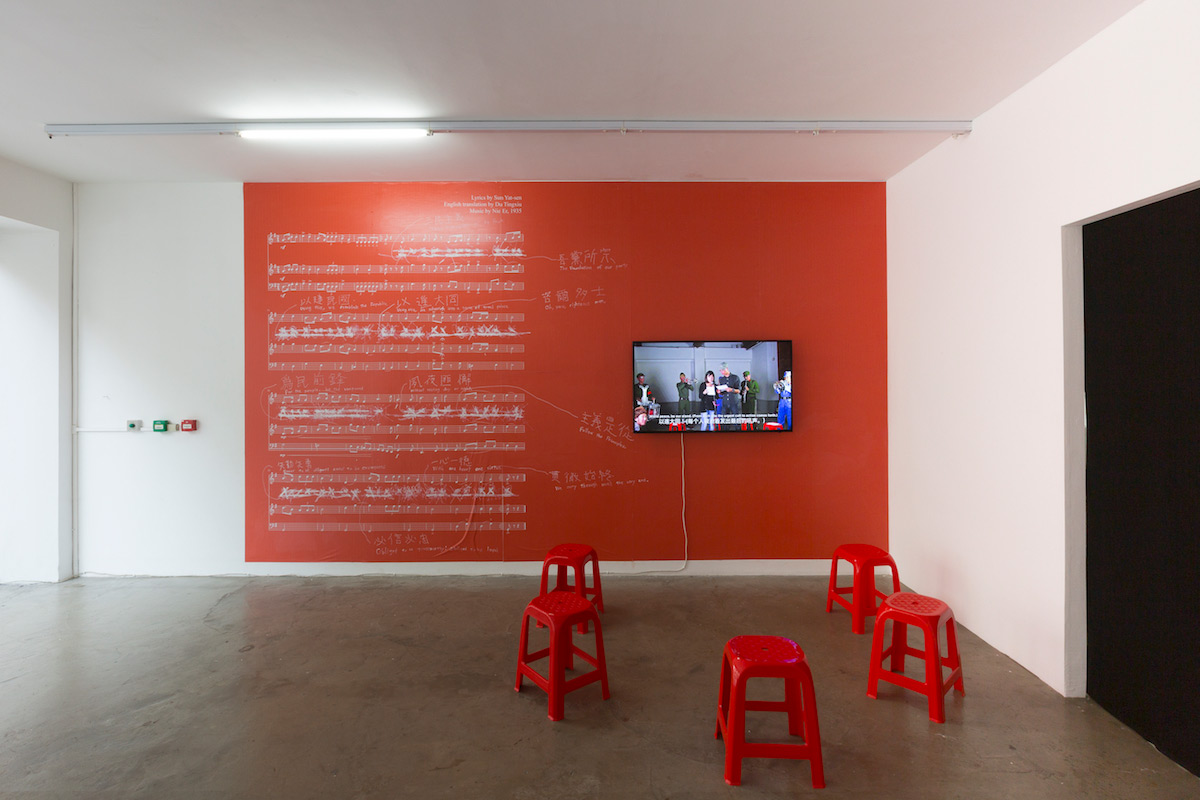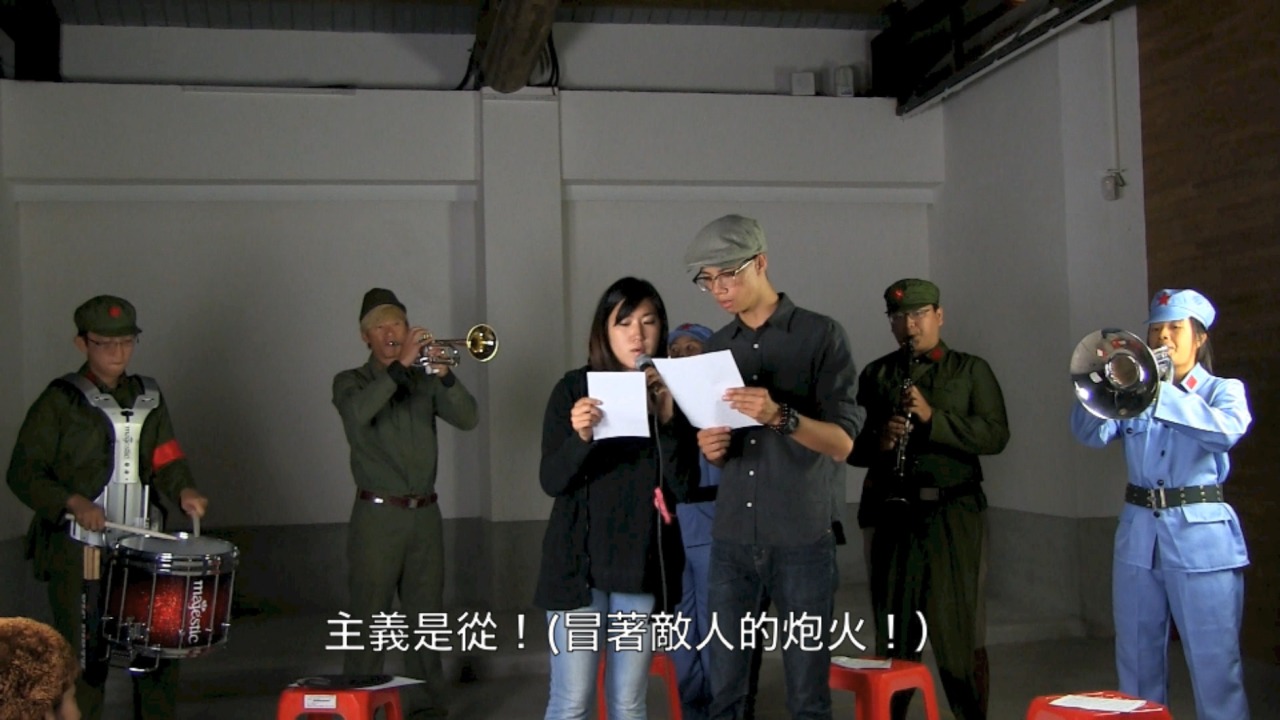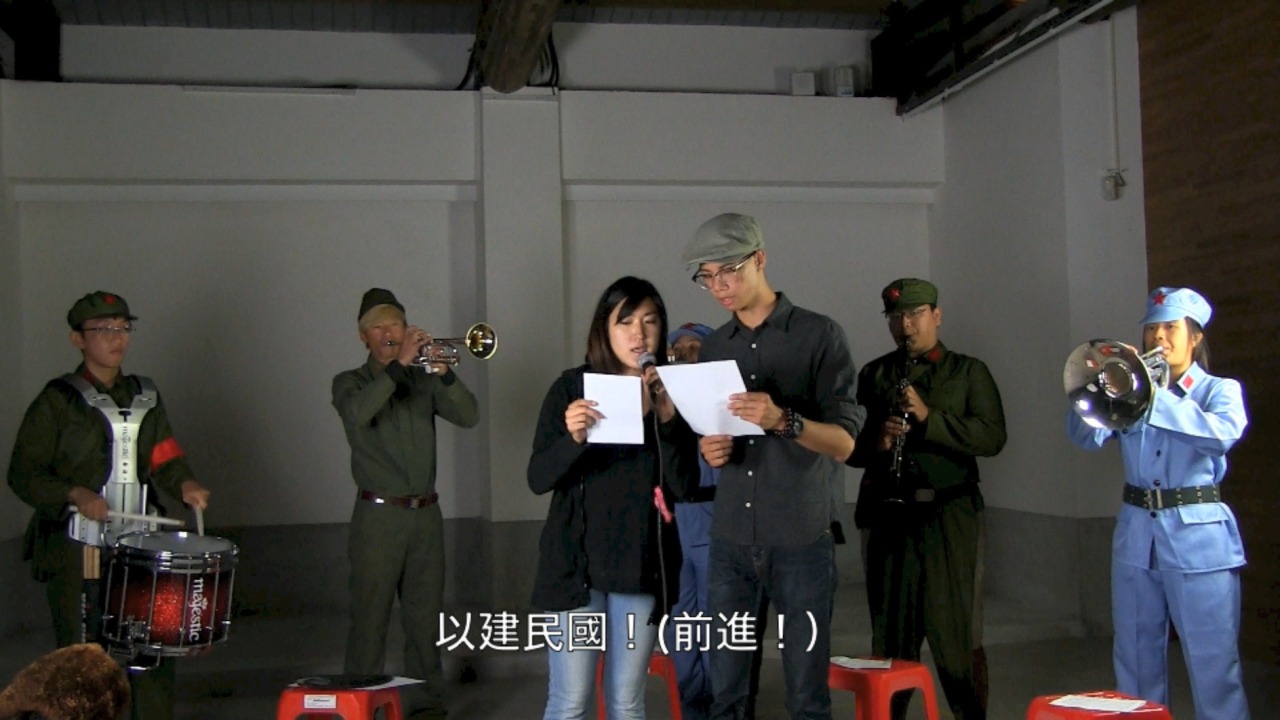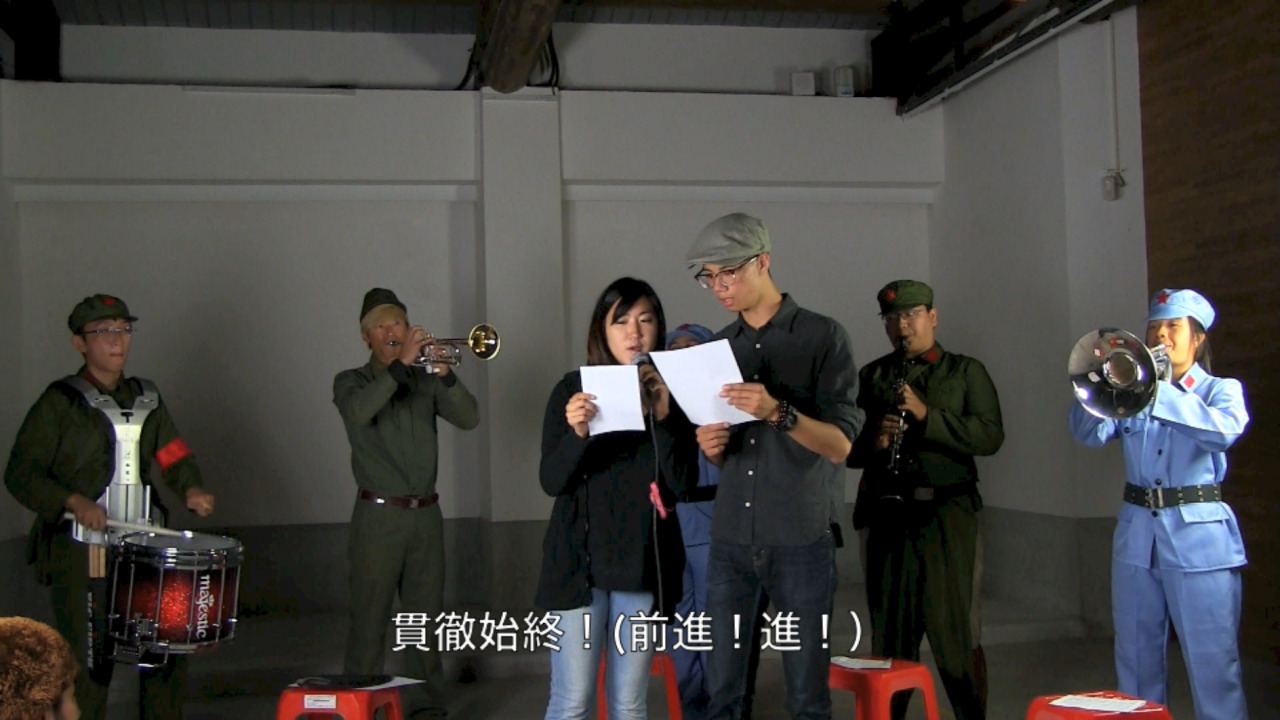Asking Taiwanese to sing national anthem of Republic of China while listening national anthem of People’s Republic of China, 2014

「あの言語は言語のように聞こえる」、Edel Assanti、ロンドン、2017での展示風景
撮影:Studio Will Amlot
写真提供:Edel Assanti, ロンドン
Installation view "That Language Sounds Like a Language" at Edel Assanti, London, 2017
Photo by Studio Will Amlot
Courtesy of Edel Assanti, London



ビデオスティル、2014
協力:Hotspring Project
撮影:丹羽良徳
Video still, 2014
Supported by Hotspring Project
Photo by Yoshinori Niwa
中華人民共和国の国歌を聞きながら中華民国の国歌を歌ってもらう
2014, シングルチャンネルビデオ(6分50秒)
台湾の楽団に中華人民共和国国家「義勇行進曲」を演奏してもらい、台湾市民にそのリズムに台湾国家の歌詞を割り当てて謳ってもらう。中国と台湾との歴史的な対立を彷彿させながらも、台湾の人々にとって、どのように中華人民共和国国家をどのように謳うか、どのように自分が謳えるようにアレンジするかということにフォーカスすることで、歴史的な対立とは別の次元での同化と反発とを同時に試みる。古くは抗日歌曲として知られた「義勇行進曲」が様々な時代を経て意味が変容したように、作り手の意図とは別に、謳う人々が自分勝手に謳おうとすることで新しい社会や文化の在り方が生まれることを示唆する。
Asking Taiwanese to sing national anthem of Republic of China while listening national anthem of People’s Republic of China
2014, Single channel video (6′50 min)
Niwa asks for Taiwanese citizens to sing their national anthem to the rhythm of the national anthem of the People’s Republic of China “March of the Volunteers” performed by a band in Taiwan. As this reminds us the historic conflict between China and Taiwan, he attempts to bring out conformation and resistance at the same time in another dimension beside the historic conflict by making them focus on how they sing or arrange to sing to the national anthem of the People’s Republic of China. Just like the traditionally known anti-Japanese song “March of the Volunteers” has changed its meaning after ages, this project indicates that by having people sing freely – separately from the creators’ intentions – creates the new ways of society and culture.
Graphic Brochure (Taiwan) Review ArtAsiaPacific (Hong Kong) Review This is tomorrow (UK) Review Drenched Reviews (UK)